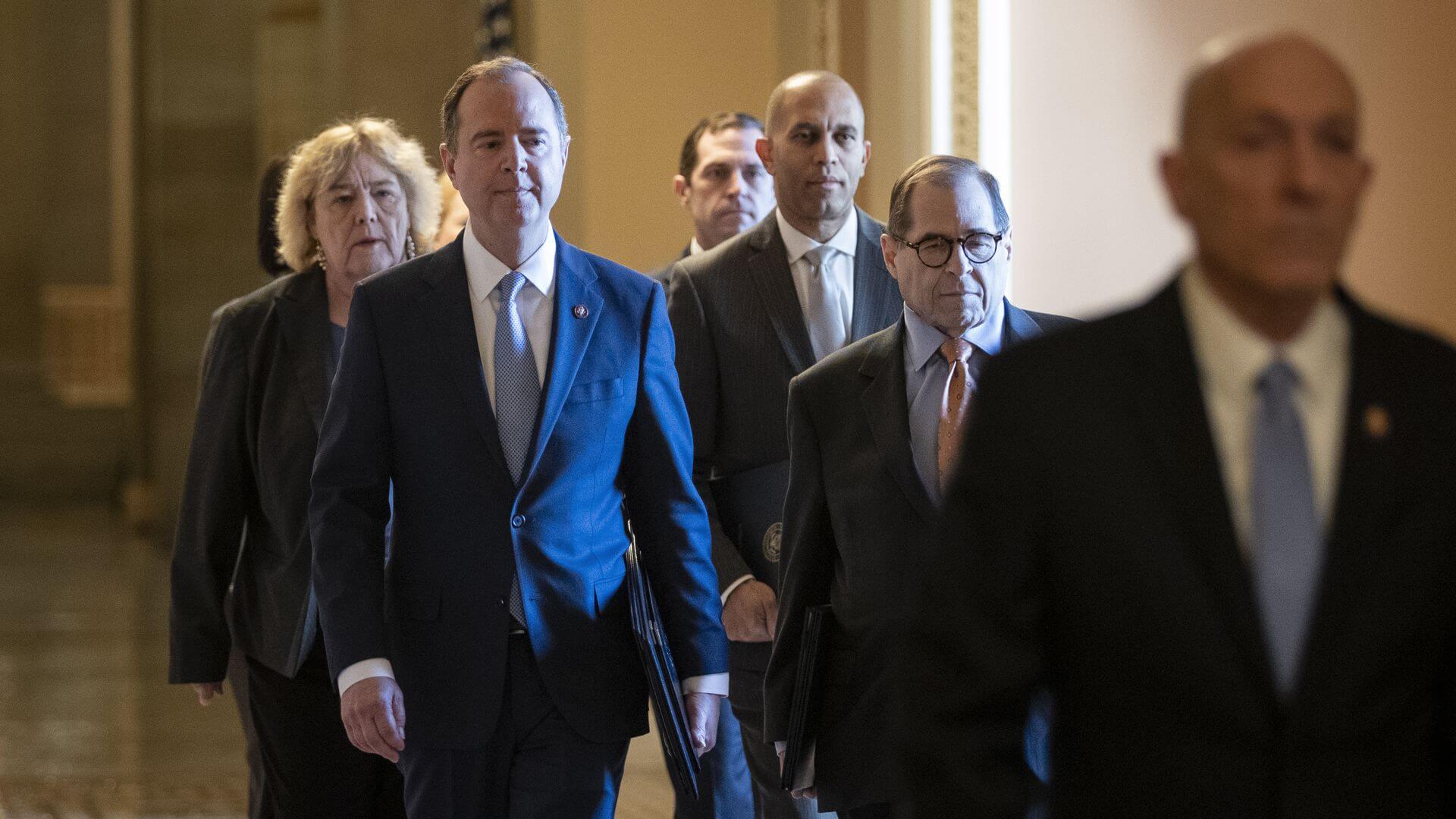
“So while I think it is important that the impeachment trial proceed, it is far more key for progressives to vest in political and social movements that target the underlying problems.”
Introduction
President Donald Trump has the auspicious honor of being only the third American President to be impeached and face trial in the Senate. While it remains highly unlikely that the Republican-controlled upper chamber will vote to remove the president, this will undoubtedly mar his legacy—a fact he seems petulantly aware of. And indeed it should, given that Trump apparently subordinated American foreign policy to his own political ambitions while putting an entire country at risk in its conflict with a powerful Russian despot. Such monumental vanity and selfishness are embedded in Trump’s worldview, which seems immunized from an appreciation for the real consequences of his actions. As the paradigmatic post-modern conservative, Trump’s “truthful hyperbole” and outright lies have contributed to the increasingly blurred distinction between his own interests and those of the American people, as well as the difference between truth and falsity—and a respect for the past as opposed to reactionary nostalgia. The United States and the world will be a more just place once Trump’s politics of resentment and fear join the ash heap of history. This trial will provide further evidence of this, if any were needed.
Beyond just pushing against the banal vindictiveness of Trumpism, impeachment serves a more important function in chiding the expanse of executive power and aloofness, which has come to characterize American politics in the past few decades. Beyond his status as a product of neoliberal society’s post-modern culture, Trump is symptomatic of a drift in power away from Congress and towards the executive branch of government, which has been going on for decades—perhaps even a century. While the Watergate scandal put a temporary hold on the expansion of the “Imperial Presidency,” the trend has since picked up again and has defined the tenure of both Republican and Democratic administrations. Impeachment can serve to curb this expansion by reasserting the power of the representative branch of government over the presidency, while also exposing the consequences of letting the head of the executive think he can do whatever he wants. This should not be an especially partisan issue; Republicans found President Barack Obama’s liberal use of executive power infuriating, much as Democrats now disdain Trumpian proclamations that the Constitution means whatever Trump wants it to mean at any given minute. Hamilton expressed the point nicely in Federalist No 69, when he hammered home why an impeachable president was one of the features that distinguished the American executive branch from a monarchy, such as Great Britain’s:
“The President of the United States would be liable to be impeached, tried, and, upon conviction of treason, bribery, or other high crimes or misdemeanors, removed from office; and would afterwards be liable to prosecution and punishment in the ordinary course of law. The person of the king of Great Britain is sacred and inviolable; there is no constitutional tribunal to which he is amenable; no punishment to which he can be subjected without involving the crisis of a national revolution. In this delicate and important circumstance of personal responsibility, the President of Confederated America would stand upon no better ground than a governor of New York, and upon worse ground than the governors of Maryland and Delaware.”
Why Impeachment Is a Secondary Concern
Given all of this, I have serious reservations about progressives putting too much stock in impeachment as a means of resolving the underlying tensions within neoliberal American society. In some respects, it could even lead to the dangerous temptation to treat Trumpism as a mere legal and technical abnormality. (This is a sentiment also reinforced if one harps on Trump having lost the popular vote in 2016.) Trumpist post-modern conservatism is a reactionary symptom of an era in which ever greater economic precarity is married to political marginalization and rapid technological change. The result of these developments is growing existential uncertainty. In such times, we turn to others, but all of these rapid changes have led to serious questions about what collective identity (if any) we all share—and what can bring people together. In such circumstances, the combination of appeals to nationalist and ethnic solidarity while blaming structural and historical social problems on the personalized enemies of conservatism (i.e. minorities, immigrants, feminists, cultural elites such as artists and academics and so on) can carry much appeal. Like the conceit that impeachment will make Trumpism go away, the nostalgia and antagonism of post-modern conservatism are myths activists tell to avoid reflecting on the bigger picture. But that does not mean such myths will stop being popular and inducing complacency and partisanship until we commit to doing more.
So while I think it is important that the impeachment trial proceed, it is far more key for progressives to vest in political and social movements that target the underlying problems. The popular campaigns of Elizabeth Warren and especially Bernie Sanders provide evidence that there is a growing desire for genuine change to rectify the conditions that have abetted the emergence of post-modern conservatives such as Trump and his various “truth is not truth” cronies. As Cornel West put it:
“Bernie is the real thing. Bernie has been a thermostat. He has shaped the climate of opinion. Too many of them are thermometers. They reflect the climate of opinion. When you’re a thermostat, you are consistent. You are speaking your truth. You are bearing your witness and there’s no doubt that Bernie and he would say, of course the whole movement from Occupy, especially in the younger generation, multiracial to the core, that they have been thermostats. They have shaped the climate of opinion and I think many of us in our own small ways really we can celebrate the fact that people now have to talk about grotesque wealth inequality as a result of social movements, as a result of organizing and mobilizing.”
West speaks the truth when he discusses the need to reshape the climate of opinion through being consistent, demonstrating integrity, and organizing to reject unfair policies, which generate mass inequality and precarity both in the United States and across the globe. It is far better to put faith in activism to change things than procedures abetting an all but certain acquittal for a President who deserves to be gone and out.
Matt McManus is Professor of Politics and International Relations at Tec de Monterrey, and the author of Making Human Dignity Central to International Human Rights Law and The Rise of Post-Modern Conservatism. His new projects include co-authoring a critical monograph on Jordan Peterson and a book on liberal rights for Palgrave MacMillan. Matt can be reached at mattmcmanus300@gmail.com or added on twitter vie @mattpolprof











